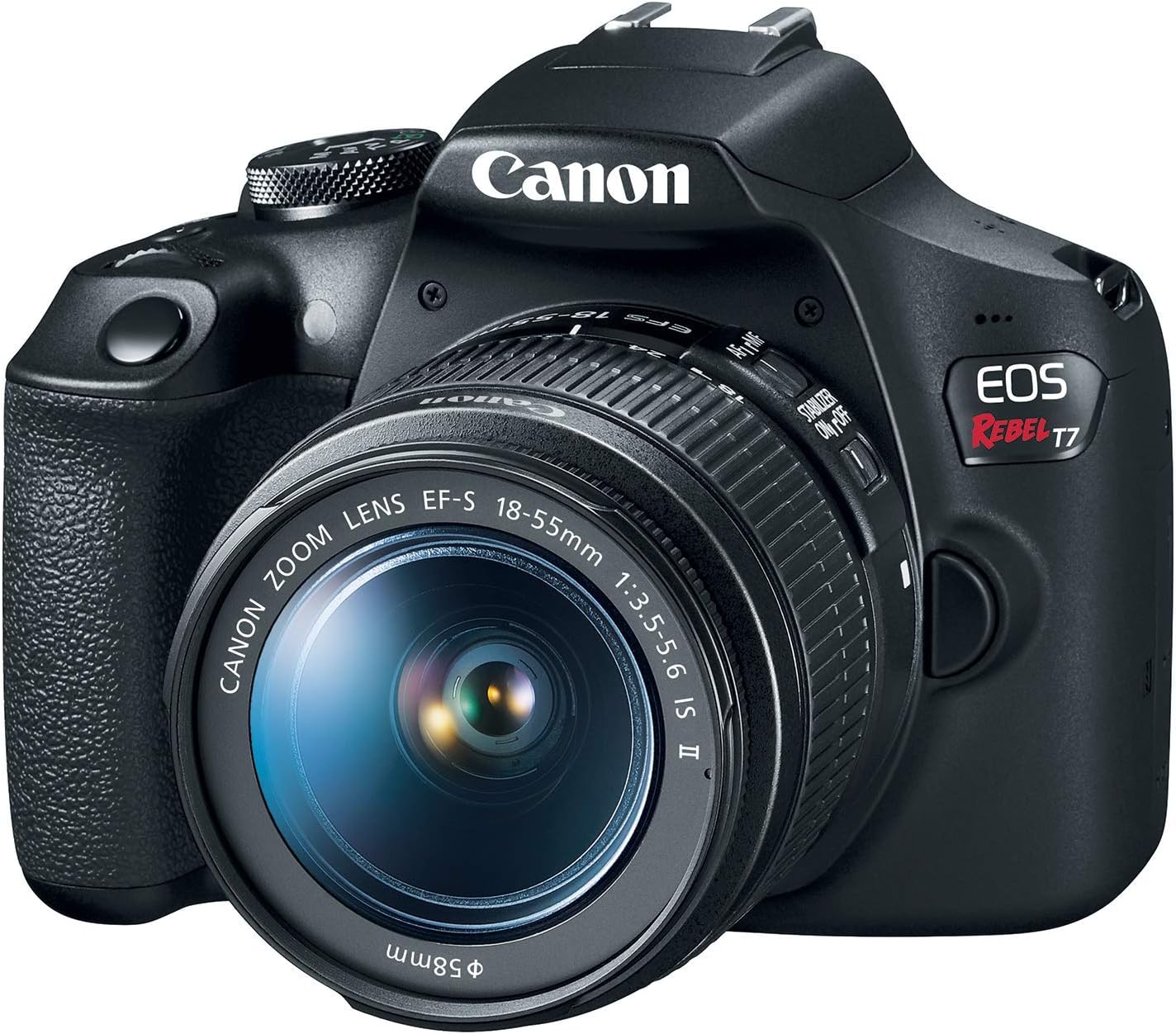





Price: $479.00 - $394.00
(as of Apr 07, 2025 01:59:33 UTC - Details)
The Best Starter DSLR Camera: Your Comprehensive Guide
Introduction
If you're looking to dive into the world of photography, you might be wondering, "What is the best starter DSLR camera?" A good DSLR camera can make a significant difference in your photography journey, whether you're a complete beginner or someone with a bit of experience. In this guide, we'll explore various options and provide helpful insights to help you make an informed decision. You'll discover everything from key features to look for in a starter DSLR to the best models available on the market today.
Understanding DSLRs: What Makes Them Great for Beginners?
Why Choose a DSLR Camera?
When you're starting out, you might ask yourself, "Why should I choose a DSLR camera over other types?" DSLRs offer several advantages. They typically have larger sensors, which means better image quality, especially in low-light conditions. The optical viewfinder also allows for a more natural shooting experience. Plus, many DSLRs have an extensive range of lenses available, which gives you the flexibility to grow in your photography skills.
Key Features to Look For
When selecting your first DSLR, consider the following features:
- Megapixels: While more megapixels don't always mean better photos, having at least 18-24 megapixels is a good starting point.
- ISO Range: A wider ISO range allows for better performance in various lighting conditions.
- Autofocus System: Look for a camera with a reliable autofocus system to ensure you capture sharp images.
- Weight and Size: As a beginner, you'll want a camera that feels comfortable in your hands and is easy to carry around.
Top Starter DSLR Cameras to Consider
1. Canon EOS Rebel T7
When it comes to beginner-friendly DSLRs, the Canon EOS Rebel T7 stands out. It's known for its ease of use and impressive image quality. The built-in Wi-Fi also allows for easy sharing of your photos, making it a great choice for those who want to upload their images quickly.
2. Nikon D3500
Another excellent option is the Nikon D3500. It offers a user-friendly interface and a "Guide Mode" that helps you learn the basics of photography as you shoot. The battery life is impressive too, allowing you to capture more photos without worrying about recharging.
3. Pentax K-70
If you're looking for something a bit different, consider the Pentax K-70. This camera is weather-sealed, making it a great choice for outdoor photography. It also has a unique feature set that caters to both beginners and more experienced photographers.
Essential Accessories for Your Starter DSLR
1. Lens Choices
When starting, you may wonder, "What lens should I use?" Many starter DSLRs come with a kit lens, typically an 18-55mm. This versatile lens is great for everyday photography. As you progress, you might want to explore prime lenses for portraits or wide-angle lenses for landscapes.
2. Tripod
A tripod is a must-have for stable shots, especially in low-light conditions. It can help you avoid camera shake, resulting in sharper images. Look for a lightweight and adjustable tripod that you can easily carry around.
3. Camera Bag
To protect your investment, a good camera bag is essential. Choose one that fits your DSLR, extra lenses, and accessories while being comfortable to carry. A bag with padded compartments will keep your gear safe during transport.
Learning the Basics of Photography
1. Understanding Exposure
One of the first things you should learn is the exposure triangle: aperture, shutter speed, and ISO. Each of these elements affects how your photos look. Spend some time experimenting with different settings to see how they impact your images.
2. Composition Techniques
Great photos are not just about the camera; composition plays a crucial role. Familiarize yourself with the rule of thirds, leading lines, and framing to create visually appealing images. Practicing these techniques can significantly improve your photography skills.
3. Editing Your Photos
In today's digital age, editing is a big part of photography. Familiarize yourself with software like Adobe Lightroom or free alternatives such as GIMP. Basic editing can help enhance your images and bring your vision to life.
Conclusion
Choosing the best starter DSLR camera is an important step in your photography journey. Whether you opt for the Canon EOS Rebel T7, Nikon D3500, or Pentax K-70, each one provides excellent features to help you capture stunning images. Remember, it's not just about the camera; understanding the basics of photography and investing in essential accessories will greatly enhance your experience. So, get out there, start shooting, and enjoy the art of photography!
By following the tips outlined in this guide, you're well on your way to becoming a confident photographer. Remember, the best starter DSLR camera is one that feels right for you, so take your time to explore and find the perfect fit!
High-Quality Imaging: The Canon EOS Rebel T7 DSLR Camera features a 24.1 Megapixel CMOS sensor for stunningly detailed photos, even in challenging lighting
Versatile ISO Range: With an ISO range of 100 to 6400 (expandable to 12800), the Canon EOS Rebel T7 captures clear images in various lighting conditions
Fast Autofocus System: Equipped with a 9-point AF system and AI Servo AF, the Canon EOS Rebel T7 ensures precise focus for sharp images every time
Built-In Sharing Options: The Canon EOS Rebel T7 DSLR Camera includes built-in Wi-Fi and NFC technology for effortless photo sharing and uploading to social media
User-Friendly Features: The Canon EOS Rebel T7 boasts a 3.0-inch LCD display and Scene Intelligent Auto mode for simplified shooting, making it perfect for beginners
